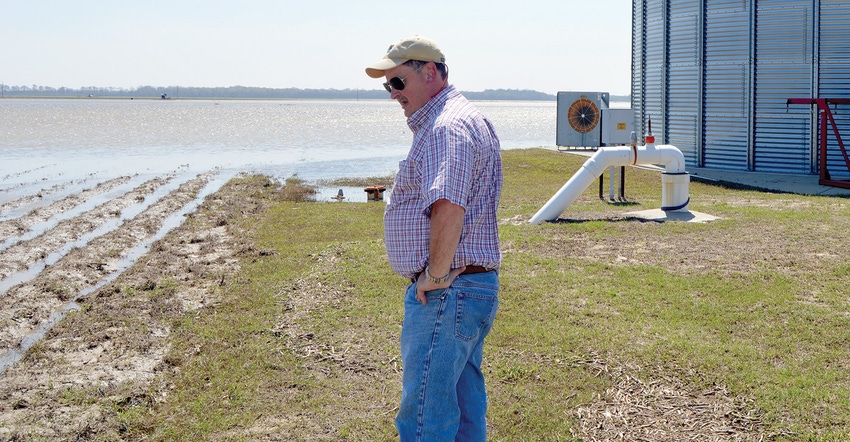December 22, 2016

For the second year in a row, depressed commodity prices made conditions hard for farmers. After several years of relatively high prices, many producers made significant investment in their operations, but the downturn in prices is causing financial hardships for some.
“We had infrastructure of these enterprises that were built on $6 corn and $14 soybeans. That just doesn’t work with $9 soybeans and $3 corn,” said LSU AgCenter economist Kurt Guidry.
Another compounding problem was unusually wet weather across the state, including two major floods. North Louisiana received torrential rains in the spring, just after a significant amount of corn was planted. Many acres of corn had to be replanted, adding to production costs.
In south Louisiana, a late-summer flood delayed harvest or ruined many acres of rice, soybeans, cotton and grain sorghum. It also delayed sugarcane planting, which may affect next year’s crop.
While the weather did not cause the statewide average yield of many crops to drop significantly, the numbers don’t reflect the true picture. Many acres went unharvested because they were in such poor condition, and those acres are not included in yield averages. Some harvested crops had major price reductions because of quality issues.
Quality issues
“A 90-bushel grain sorghum yield looks good on paper, but if you can’t sell it because of quality issues, it doesn’t do you any good to harvest 90 bushels,” Guidry said.
According to Guidry, producers should not expect any relief in terms of commodity prices. He believes sugar is the only commodity with a stable price among the major row crops grown in the state.
“We’re going to have to deal with corn in the $3-$4 range and soybeans in the $9-$10 range. That’s just going to make that recovery much more difficult,” Guidry said.
Another concern of Guidry’s is declining land values. Many farmers have much of their equity in the land they own and farm. While values are not falling as fast as they are in the Midwest, it is something Louisiana farmers should take seriously.
“What we’re seeing is an erosion of equity because of these reductions in land values that impacts farmers’ ability to withstand these hard times,” Guidry said.
Price rebound not expected
It is important for producers to have good yields next year because prices are not expected to rebound. Favorable weather would also be beneficial, he said.
Cattle prices have stabilized for the past month, Guidry said, and he believes the bottom of that market may have been reached, with a slight increase possible sometime in 2017.
About the Author(s)
You May Also Like






